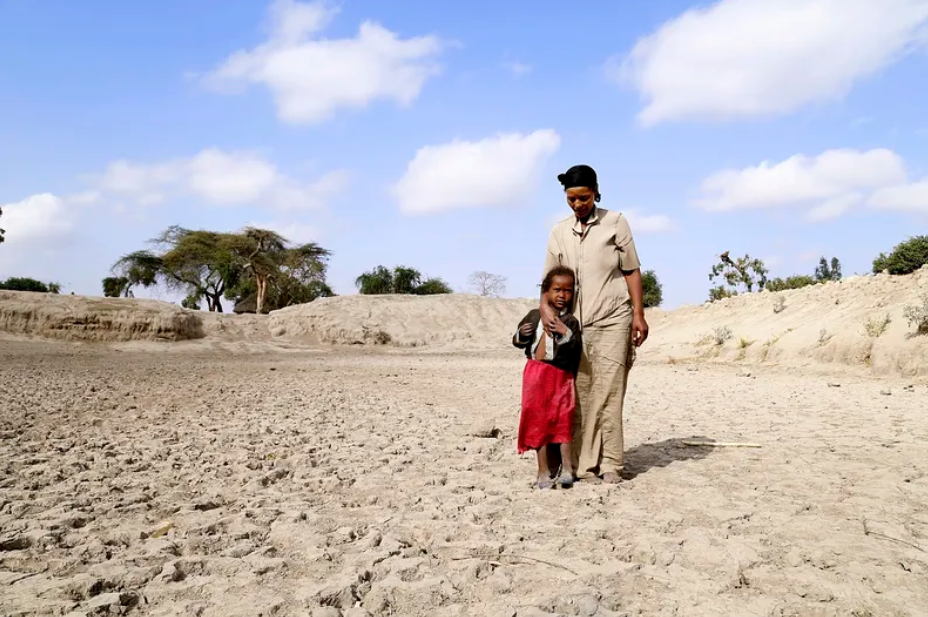December 2022 Interfaith News Roundup
by Paul Chaffee
The Interfaith News Roundup is a monthly publication of The Interfaith Observer. Paragraph by paragraph the Roundup summarizes major religion/interfaith stories that are underreported. Each paragraph is linked to the full story it introduces.
Interfaith News Notes
Sometimes good business makes for good interfaith. A Duke University food-truck is offering students both kosher and hallal goodies, meeting the stringent dietary codes and serving both Jewish and Muslim customers. If only global racism were so easy to solve!
Whanganui River in New Zealand, which gained status as a legal person in 2017 — Photo: Wikipedia
Animism, the belief that objects, places, and creatures all possess a distinct spiritual presence, is finding renewed interest globally. The notion draws from Indigenous cosmologies and has sometimes been construed as an early, primitive version of ‘religion.’ This new interest suggests otherwise. Incidentally, a “New Animism” movement is using the belief to justify granting personhood to nonhuman beings.
A number of signs suggest that disapproval of same-sex relationships is diminishing in the US. Calvin University, for instance, the 146-year-old, highly respected Evangelical institution, is changing its attitude. The school still takes a stand against homosexuality but will no longer fire faculty and staff who disagree. A similar attitude has emerged in the Church of Jesus Christ of Latter Day Saints. Mormons officially continue to contend that same-sex attraction is immoral, but sinful only when acted upon. The orientation, by itself, is not a hindrance to participating in the faith. As a result of this liberalization, the Church is supporting the Respect for Marriage bill currently in Congress. That bill, which is garnering considerable bipartisan support in Washington, is another sign of a new day.
Not abroad, however, where bigotry about everything related to LGBTQ+ reigns in many countries, particularly Russia, according to the New York Times. Laws against same-sex marriage in China have not stopped some Chinese gay lovers who are having their vows pronounced in Zoom weddings being hosted in Utah.
Photo: Pexels
In a surprising turn-around, more and more businesses are inviting employees to bring their faith to work, providing a new arena for multifaith relationships to thrive. (This trend should not be confused with institutions which require employees to participate in the belief and practice of the business owners.)
Last month Pope Francis continued his activities as the globe’s premier interfaith champion by addressing a three-day interfaith summit in Bahrain, bringing together “leading Muslim imams, the spiritual leader of the world’s Orthodox Christians, and US rabbis who have long engaged in interfaith dialogue.” The war in Ukraine dominated their discussion, with the Pope noting that the time has come to end the “childlike” whims of the powerful pursuing war. A few weeks earlier. Pope Francis gathered various religious leaders in Rome. Again preoccupied with Ukraine, he made a plea for the end of the “nuclear nightmare” that hangs over the world.
Climate – the Critical Issue
Disasters have given rise to a familiar litany: “This year, we have witnessed devastating hurricanes, typhoons and floods. The US and Australia burned. Europe sweltered under a prolonged heatwave. Drought and flooding in east Africa has left many facing food shortages. One-third of Pakistan was underwater after torrential monsoon rains, and half a million people there are homeless.” So begins a recent story in The Guardian. Before despairing, though, read in the same article how Africa is developing “climate adaptation,” a set of solutions offering great hope.
A women and her daughter stand at the bottom of a basin in Ethiopia that used to be the community watering hole — Photo: RawPixel
The article “Covering climate in the Global South” dives deeply into how folks in the southern hemisphere are addressing climate issues on the ground. It’s frightening and encouraging all at once. The big unknown – paying for mitigation. Global climate activists have been shifting their attention to the financial issues in an ethically compromised context: “… the Global North is responsible for 92% of excess global carbon emissions, yet nine of the top 10 countries most at risk from climate change are in the Global South.”
Two hundred countries sent representatives to COP27, the international United Nations Climate Change Conference (COP27), held at Sharm El-Sheikh in Egypt. “Who pays for the damage caused by climate change?” was a dominating theme of the high-level gathering. But the financial difficulties shouldn’t leave one thinking that nothing was accomplished at COP27. For a listing and discussion of the many achievements, go here.
Meanwhile, grassroots efforts, though they can take time, remain a hopeful response to climate difficulties. Forty years ago Nepal saw its land being degraded by firewood and expanding cropland. It turns out that reclaiming its forests is transforming Nepalese culture and economy with a cascade of good results.
Religion & Government
A Faith-based Security Advisory Council was convened in October by the US Department of Homeland Security in a program to make places of worship safer. The new agency was created by President Biden while commemorating the 10th anniversary of the violent attack on a Sikh temple in Oak Creek, Wisconsin, where seven died and three more were wounded. The Council is made up of religious leaders from different traditions and law-enforcement experts.
The complaint that religion today has little if any leverage or power regarding the major issues of the day is well weathered. It is encouraging, then, to hear about the FORB (Freedom of Religion and Belief) movement which is growing globally. Working hard and smart, FORB is creating a global network of activists from various faiths working together to guarantee that all human beings be given the freedom to believe and practice what they choose.
The US Supreme Court is wrestling over who should be given priority when a Native American child is being adopted through a non-native foster-care program. “A white couple living in Texas who want to adopt a now 4-year-old girl whose birth mother is Navajo,” are pitted against the child’s blood-relatives who are claiming their right to raise the child. The case has become a “Solomonic fight over the fate of a child,” according to the New York Times. The fact that some non-native Evangelicals adopt Indigenous children with an intent to convert is part of the debate.
A record-setting 145 American Muslims ran for local, state, national, and judicial office in recent elections. An unprecedented 80 of them in more than 20 states won, a new affirmation that this country is a multifaith nation thriving in its diversity.
More tragic news comes from Afghanistan. When the Taliban took back power in Afghanistan in 2021, they promised their new policies would be more moderate than when they earlier governed (1996-2001). Now, though, the BBC reports that “Taliban leader Haibatullah Akhundzada has ordered Afghan judges to impose punishments for certain crimes that may include public amputations and stoning.” Professional and educational activities, particularly for women and children, are being radically curtailed, most recently by forbidding them from visiting parks.
A number of American Jewish organizations that stayed out of the recent elections in Israel have since weighed in over a concern about Benjamin Netanyahu’s partnering with far-right political groups. Thomas Friedman’s “The Israel We Knew Is Gone” is a gobsmacking wake-up call to anyone who thinks that right-wing religion in America is at all unique in the world. The implications of Friedman’s thesis should send shudders through progressive religionists in the United States.
The Christian Nationalism Scandal
Making the United States a Christian nation is getting considerable press these days, A new sweeping Pew Research survey suggests that nearly half the nation agrees, to some degree. However, most of those polled (52%), said the government should never declare any particular faith the official state religion. Only 28% said they wanted Christianity recognized as the country’s official faith.” Surely though, having a quarter of the population wanting an official established religion is a wake-up call for anyone who cherishes religious freedom.
The hard-core vision is even more concerning. The ultimate goal of Christian nationalism is detailed in an article published in The Federalist. In it, “senior editor John Daniel Davidson openly calls for conservatives to embrace totalitarianism to rebuild society in their image.” Equally scandalous is how some in the Christian Nationalist movement have embraced Vladimir Putin and his behavior in Ukraine.
This extremist vision is not being ignored. A group of Christian leaders, including a number of denominational leaders, earlier this year signed a letter addressed to the January 6 Select Commission. As members of “Christians Against Christian Nationalism, “they asked the Commission to investigate the movement as a cause of the insurrection. No doubt these clergy were heartened when Douglas Mastriono, one of the most vocal defenders of Christian nationalism, was soundly defeated in his campaign to become Pennsylvania’s governor last month.
Christian nationalism is a complex subject worth studying by anyone concerned about the freedoms of faith and spiritual/religious practice. You Tube is featuring an excellent, fair, and engaging survey of the subject, a 30-minute master-class in what is a critical issue for the nation. It is produced by Meet the Press Reports.
New Resources
Vicki Garlock keeps growing her reputation at the nation’s finest storyteller of religious tales for children. This January she releases her third kids’ book, ABCs of the World’s Religions. Geared to kids age 3-10, the book introduces several of the world's major faith traditions, including Hinduism, Buddhism, Judaism, Christianity, Islam, and Sikhism. Her earlier books include Embracing Peace: Stories from the World's Faith Traditions and the award-winning We All Have Sacred Spaces. Go here for more info about Vicki and her work.
Religicide: Confronting the Roots of Anti-Religious Violence by Georgette F. Bennett and Jerry White was published last month. Trying to destroy whole religions seems mind-boggling, but remember how the list begins with Yazidis, Rohingyas, Uighurs, Indigenous traditions around the world, and so many more... Bennett and White take a well-documented deep dive into this neglected subject in a major contribution to interfaith studies. Incidentally, Jerry White was recently tapped to be United Religions Initiative’s new executive director.
In Memoriam
Reform Jewish Rabbi Philip Hiat, a pioneer in Jewish interfaith engagement, died on September 10 at the age of 95. He played a critical role in his scholarship and active pursuit of stronger relations among faiths, particularly between Catholics and Jews.
Header Photo: thomas williams, C.c. 2.0, BY-ND






